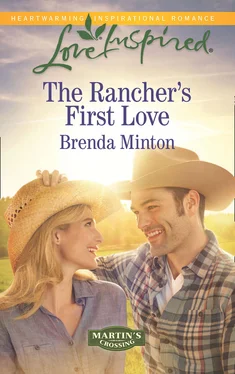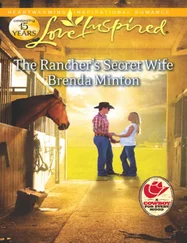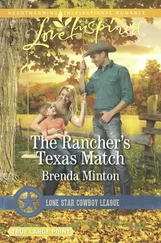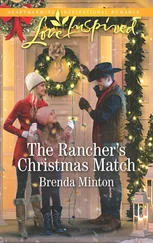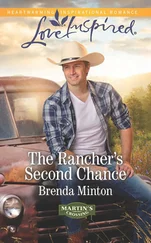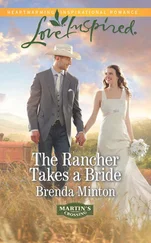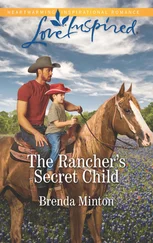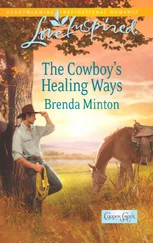Sam noticed and she nodded. She cheered as her niece pulled the horse up. “Now that was a ride, Lilly. You’re going to be tough to beat.”
“Thanks, Aunt Sam.” Lilly leaned down, hugging the neck of her horse.
“Walk him around the arena, let him cool off, and then we’ll head back to the ranch.”
Sam faced him then. “By the way, I have nine puppies. Since you were there, I hold you responsible for finding homes for at least four of them.”
He held up his hands and shook his head. “I had nothing to do with that mess.”
She grinned and it undid the tension he’d been feeling since the start of the conversation. When she looked at him like that, it felt like the sun coming out after a month of rain.
“You were there, Rem. You share the blame and the responsibility.” And then the sun went behind the clouds. Her eyes shadowed and it seemed as if with one sentence she took on the weight of the world.
“Sam?”
“I have to go. Lilly needs me.”
As she walked away, heading for the gate opposite where they stood, he hurried around the arena to catch up with her. He couldn’t let her get away, not now, when it seemed they had things to say to one another.
But Lilly was there, unsaddling the horse she’d tied to the trailer, and Sam was smiling, pretending he hadn’t unleashed something deep inside her. He watched as the two of them discussed Lilly’s horse and how well she’d done. Lilly asked if Sam was going to ride her horse again. The palomino was still saddled and tied to the gate.
“No, I think he’s had enough for the day. So have I. We should head back to the ranch and have some lunch before I have to go in to work.”
That was his cue to stop standing around like a self-conscious kid trying to work up the nerve to ask out the most popular girl in school.
“I need to get back to Gus. He’s trying to fix a tractor he should have replaced twenty years ago.” He backed away from them. Sam lifted the saddle off her horse and settled it on the saddle rack.
She faced him again, her blue eyes the color of a perfect spring day. Yeah, she still made him wax poetic. He had written her a few poems. Really bad ones, if memory served. He doubted she’d kept his poetry that compared her hair to corn silk and her lips to cotton candy.
“What are you smiling about?”
He should have said nothing. Instead he pulled off his hat and laughed. “Your hair is the color of corn silk and your eyes the color of robin’s eggs.”
“I can’t believe you remember that. You were the worst poet in the world. I take that back. You were no poet, Mr. Jenkins. There is nothing about my lips that resembles cotton candy.”
But at least she was laughing. He guessed he’d have to add a line about her laughter being like the chorus of songbirds, or something equally corny.
“No, I wasn’t a poet. But I’m sure that even my lack of poetic ability didn’t detract from my charming personality.”
“Yes, you were charming.”
“So the two of you dated?” Lilly stopped brushing her horse and looked at them. “Seriously?”
“Seriously,” Sam answered. “It was a long time ago.”
“I should go,” he said.
She nodded in agreement. “Give Gus my love. If he needs anything, tell him to call.”
“I’ll tell him.”
She walked away, a cowgirl in a pale pink T-shirt and faded jeans that he’d never quite forgotten.
Chapter Four
On the last day of Sam’s four-day workweek, Dr. Jackson called her into his office. She stepped into the tiny room, files and papers stacked everywhere. Sitting behind his desk, he motioned for her to take a seat. She moved a few files from the chair and sat down to wait. He didn’t speak for a moment. His gray head was bent as he read over a manual of some type and he was clearly puzzled. After a few minutes, he shook his head.
“Have you ever put an entertainment center together?” he asked without looking up.
She laughed, because she’d thought he might be studying a new medical procedure or a research paper. He glanced up, his glasses perched on the end of his nose.
“That’s funny?” he asked.
“Yes, I thought this was about a patient. A treatment. Not an entertainment system. In answer to your question, yes, I have.”
“Of course you have. That’s something I like about you, Samantha, you’re independent.” He slid the paper across his cluttered desk. “Why does this seem wrong?”
She gave it a look and then turned it over and held it up to the light. “Because it’s backwards. Right to left, not left to right.”
“Gotcha.” He took the paper back and held it up to the light. “Well, I’ll be dipped in tartar sauce.”
That was a new one. He did like to make up his own sayings and the nurses all repeated them. She couldn’t wait to share “dipped in tartar sauce.” She waited for him to say more.
He looked up again and removed his glasses. “You live in Martin’s Crossing, correct?”
“Yes, sir.”
“That’s what I thought.” He reached for a file and pushed the glasses back on his face. “Parker.”
Her mood lifted, because Parker had that effect on people. He’d gone through so much but still had a way of making others a little bit happier.
“What about Parker?”
“As you know, he’s going home,” he handed her the file. “Today.”
“I knew he’d be released soon but didn’t realize it would be today. That’s wonderful.” But also frightening. She always worried when a patient went home.
“Yes, it is. But we’re not ready to turn him loose. Not completely. Which is why we’ve come up with a new service we’d like to do on a trial basis.”
“New service?” She really had no idea how this pertained to her.
“Yes, we’d like to do a continued care program for our patients.”
Home visits. Good idea. But then she realized why she’d been called in to the office. She lived in Martin’s Crossing, which meant he wanted her to look in on Parker. She looked at the file, then met the serious gaze of the man sitting across the desk from her. He must have seen on her face that she planned to object because he held up a hand to stop her.
“We need someone to check on him once a week. Nothing too time-consuming. A short visit to make sure he’s still progressing and coping with the home environment. Also to make sure the caregivers—the family—are coping. I think if we do this, we can catch infections and other issues before they become problems that could jeopardize the health and continued recovery of our patients.”
Brilliant idea really, but the thought of stopping by the Jenkins farm every week wasn’t really one she wanted to embrace.
“I think it’s a great idea. But someone else should do it,” she started.
“You live in Martin’s Crossing. Parker thinks you’re the best nurse ever. And I have confidence in you because you have experience in several areas.”
“Yes, but...” she started. Then stopped. What could she say to that?
“Is something wrong?”
She shook her head. “No, nothing is wrong.”
“Great, then we’ll get all of the appropriate paperwork taken care of. We’ll need you to keep track of your time and mileage.”
“Of course.”
He stood and rounded the desk. “Let’s go talk to his family.”
She could tell by his tone and expression that in his mind it was all settled. Because he didn’t know how much she wanted to avoid Remington Jenkins. He didn’t know how much it hurt to look at Remington and remember.
She chased away that thought because this was about a child. And children came first. Parker came first. He came before her fears, her doubts and her resentment.
Читать дальше
